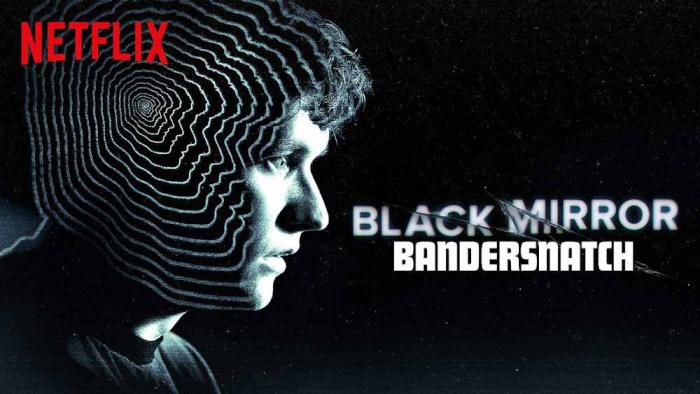 So...review time.
So...review time. I think I explored and found all of the endings. It's literally a movie that never ends until you choose for it to, looping back onto itself so long as you continue to make choices. -If we build a computer that knows enough about human nature, that can process enough of our predispositions, habits, patterns, and desires, that knows enough about reality as we perceive it to understand most of the variables, can it prove that human free will is just as much an illusion as artificial intelligence? Is sentience no more than an incredibly complex logic tree? (a tracked series of choices and outcomes, like the ones Stefan uses to build his game)
If we are, then "free will" does not exist. Sometimes the scariest thing to suggest to people is that they are not in control of themselves, their choices...their reality. Why is that so frightening? Why do we sometimes decide to choose "something different" at what feels to us a random, spur of the moment decision? Why do we chase a novelty that is unlikely to be any better than the well worn path we've taken countless times before? I'd argue that the desire for novelty is our minds beginning to realize that perhaps we aren't as in control of our choices as we'd like to believe. When we start to feel that way, we rebel, because the other option is that we are a slave to the will of someone else, that we are not "free". If we truly are in charge, why do we feel the need to "prove" it to ourselves?
In short: I think BM:Bandersnatch is brilliant, but I can see how people that aren't fascinated by questions of free will and dilemmas regarding the perception of reality might not "get it".
Colin is easily the most fascinating character in the entire movie, and the movie gets weaker the further you get away from him. Part of that is that he's the "deus ex machina" of the film, there to give explanations that don't always feel earned, and part of that is because he's the only one with any sort of grasp on what's happening. Like in most things, the only person in the room that has any answers is instantly the most interesting. When Colin invites Stefan up to his place, and Stefan looks out the window, he sees the houses below, how they all look the same, purchased by and filled with people that all no doubt consider themselves unique and special. That he only sees it once he's above street level is another metaphor for how we see ourselves - we can't see how connected and similar we all are until something shifts our perspective enough for us to spot the difference.
In Westworld (the HBO show), there was the metaphorical "maze", a simple game designed to limit choice. Escaping the maze (metaphorically) was analogous to freeing the minds of the hosts, of attaining free will. The unspoken understanding of that being that so long as you are caught up in the maze, working from the limited number of choices that you are given, you are not the master of your own fate. You are not free. That all feeds back into this movie as well. The concepts are interconnected.
The central premise of BL: Bandersnatch really centers on the conversation that Stefan and Colin have in Colin's apartment regarding PAC-MAN.
The idea that, if you can limit choice, you can effectively control people while still allowing them to feel as though they have free will has a lot of truth in it. (Because while they DO have options, they're forced to choose between a minimal set of options that have already been accounted/planned for)
All in all, it's a fascinating allegory exploring the idea of free will, the struggle we all face between the limited number of choices we feel we have sometimes, and why it is that we only ever see those limited choices if we can literally do anything we want. How often do we simply take the paths given to us, the options presented by others? How many times do we take the same route home from work, simply because it is familiar? Eat the same types of meals, make similar fashion choices, etc? How predictable can people be, if you know enough about what motivates them?
That line of thought naturally leads me to the question that I ask myself whenever someone tries to tell me that artificial intelligence will never exist, that machines will never have free will or sentience.
As Colin says in the film, you can go deep down that rabbit hole if you want if you're already of the mind to ask those sort of question, but as I said at the beginning of this post, I can see why it might seem like a mess or confusing if you aren't already predisposed to think along those lines.

Comments
Post a Comment